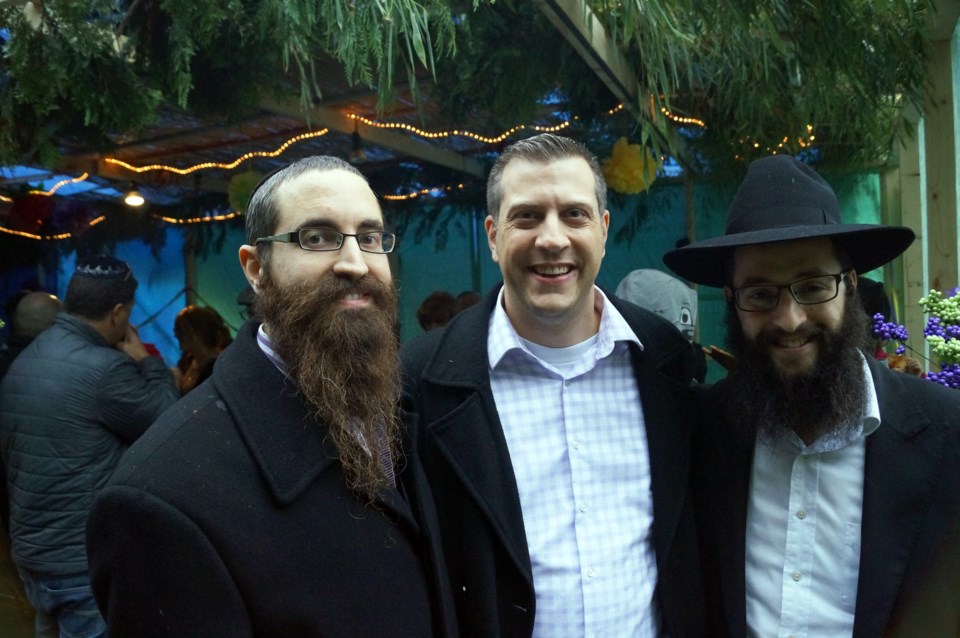While many non-Jews are likely to know their Jewish friends celebrate Rosh Hashanah and Yom Kippur during the High Holidays, few may be familiar with another biblical holiday that follows the more mainstream ones.
Sukkot marks the remembrance of Israelites performing their famous pilgrimage, led by Moses and at the will of God, to free themselves from slavery in Egypt. The week-long holiday comes at the time of harvest and thus has an agricultural feel to it.
At The Bayit Connect — a small orthodox synagogue that has made an office space at No. 3 Road and Steveston Highway a special place of gathering for its 50-family congregation — members have created a sukkah, a temporary dwelling that signifies where Israeli farmers lived during their 40 years of travel.
A traditional sukkah may typically be made of wood and bamboo and covered with palm leaves.
“Right now, ours is covered with a tarp, so the kids don’t get soaked,” quipped Rabbi Mendy Feigelstock, speaking to the wet, fall weather.
In the Bayit’s parking lot on Wednesday, families gathered for pizza in the sukkah. The congregation dubbed the event “Pizza in the Hut.”
“Every year we build a big one for the community and hold events for the people during the holiday,” said Feigelstock, who was pleased to welcome Mayor Malcolm Brodie.
Typically, Jews may sleep in their sukkahs, but considering more people live in multi-family units, the Bayit’s sukkah is becoming ever more important to teach children of the Book of Exodus.
“If we don’t do this event, their kids will never be able to eat and celebrate within it,” said Feigelstock.
Biyat’s president Michael Sachs said the orthodox Jewish community in Richmond remains small but steady. Older people have left, leading to a downtick in the population, he said, however, more recently, newcomers have arrived. According to Statistics Canada’s 2011 National Household Survey, just 160 people speak Hebrew as their primary language at home in Richmond. This was down from 180 in 2006.
Biyat holds weekly services and prayers for the orthodox community and lays claim to the only kosher Mikvah (spiritual bath) in Richmond.



